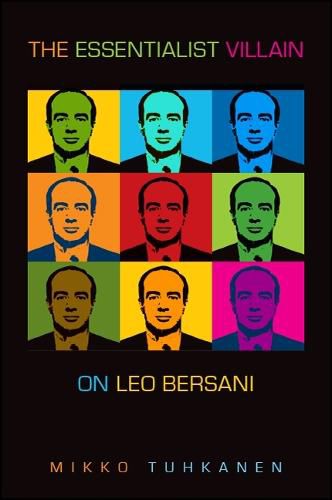Readings Newsletter
Become a Readings Member to make your shopping experience even easier.
Sign in or sign up for free!
You’re not far away from qualifying for FREE standard shipping within Australia
You’ve qualified for FREE standard shipping within Australia
The cart is loading…






Since his first publications in the late 1950s, Leo Bersani’s work has influenced numerous scholarly fields, from studies of French modernism and realist fiction to psychoanalytic criticism and film theory. It has occasionally helped precipitate the emergence of new disciplinary fields, such as queer theory in the late 1980s. The Essentialist Villain is the first book-length study of this impressively rich oeuvre. Mikko Tuhkanen tracks the unfolding of Bersani’s onto-ethics/aesthetics, paying particular attention to his persistent references to essence, a concept central to classical speculative philosophy, which has fallen into distinct disfavor since the emergence of deconstructive thought. Because of his early influences-particularly Gilles Deleuze’s philosophy-Bersani remains an ontologist through decades when deconstruction seems to have all but disallowed any thought of being. Tuhkanen also locates Bersani’s thought amidst numerous literary, artistic, and philosophical interlocutors, including Deleuze, Freud, Proust, Laplanche, Beckett, Baudelaire, Genet, Leibniz, and others.
$9.00 standard shipping within Australia
FREE standard shipping within Australia for orders over $100.00
Express & International shipping calculated at checkout
Since his first publications in the late 1950s, Leo Bersani’s work has influenced numerous scholarly fields, from studies of French modernism and realist fiction to psychoanalytic criticism and film theory. It has occasionally helped precipitate the emergence of new disciplinary fields, such as queer theory in the late 1980s. The Essentialist Villain is the first book-length study of this impressively rich oeuvre. Mikko Tuhkanen tracks the unfolding of Bersani’s onto-ethics/aesthetics, paying particular attention to his persistent references to essence, a concept central to classical speculative philosophy, which has fallen into distinct disfavor since the emergence of deconstructive thought. Because of his early influences-particularly Gilles Deleuze’s philosophy-Bersani remains an ontologist through decades when deconstruction seems to have all but disallowed any thought of being. Tuhkanen also locates Bersani’s thought amidst numerous literary, artistic, and philosophical interlocutors, including Deleuze, Freud, Proust, Laplanche, Beckett, Baudelaire, Genet, Leibniz, and others.